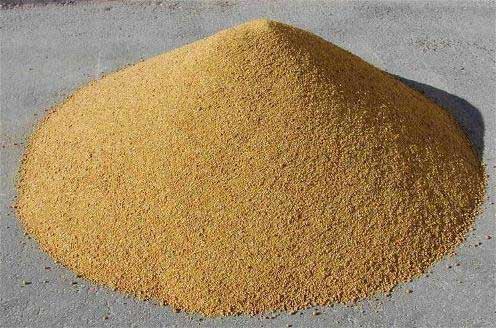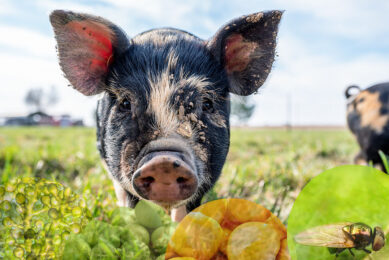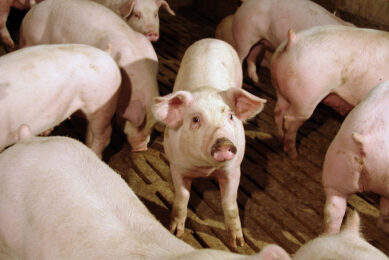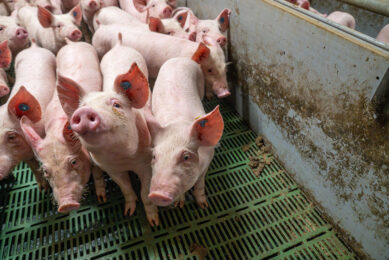Research: DDGS in pigs

In a study at Lyons Research Farm in Ireland the response of growth performance, nitrogen, and phosphorus excretion of growing–finishing pigs to diets containing incremental levels of maize dried distiller’s grains with solubles was investigated.
A completely randomized design experiment was performed to examine the effect of formulating incremental concentrations of dietary maize dried distiller’s grains with solubles (DDGS) on a net energy (NE) and ileal digestible amino acid (IDAA) basis, on growth performance and coefficient of total tract apparent digestibility (CTTAD) parameters of growing–finishing pigs.
The study investigated the effect of incrementally replacing diet wheat with DDGS on pig growth performance, carcass characteristics, apparent nutrient digestibility, nitrogen (N) balance, phosphorus (P) balance and manure ammonia emissions.
Trial setup
Three hundred and fifty-two pigs (42.4 kg) were blocked on the basis of initial body-weight (BW) and assigned to one of four dietary treatments: (T1) basal diet, (T2) basal diet with 100 g/kg DDGS, (T3) basal diet with 200 g/kg DDGS and (T4) basal diet with 300 g/kg of DDGS.
The inclusion of DDGS in the diet was achieved by decreasing concentrations of wheat and all dietary treatments were formulated to contain similar concentrations of ileal digestible amino acids (IDAA), available P and NE.
Results
There was no effect of increasing levels of DDGS on daily gain, feed intake, feed conversion ratio (FCR) and carcass characteristics during the experimental period.
There was a linear decrease in the CTTAD of dry matter and gross energy with increasing levels of DDGS in the diet.
There was a linear increase in N intake, urinary N excretion and total N excretion with increasing levels of DDGS in the diet.
There was a linear decrease in P intake as the level of DDGS increased in the diet.
There was no difference in manure ammonia emissions as the level of DDGS increased in the diet.
Conclusion
When formulated on a NE and IDAA basis, consumption of DDGS at inclusion rates of up to 300 g/kg does not affect growth performance or carcass characteristics.
While incremental consumption of dietary DDGS increased total N excretion, this was not reflected in elevated manure ammonia emissions.
Join 26,000+ subscribers
Subscribe to our newsletter to stay updated about all the need-to-know content in the feed sector, three times a week. Beheer
Beheer









 WP Admin
WP Admin  Bewerk bericht
Bewerk bericht